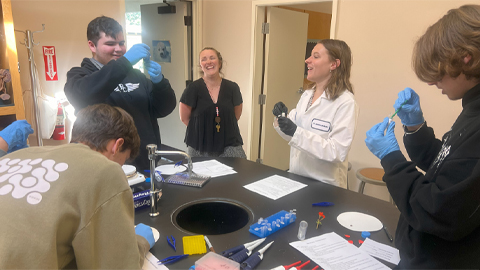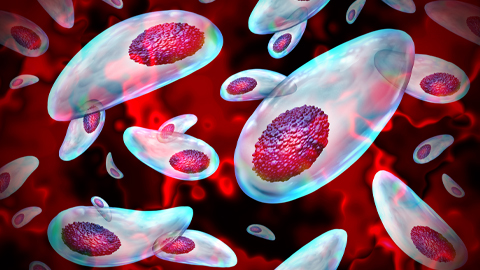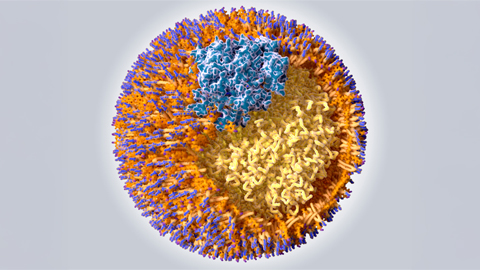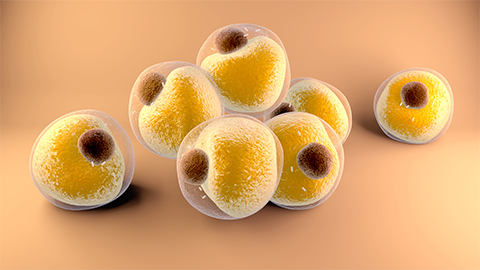
Carbohydrates for life, health and diseases
What molecules determine human ABO blood groups? What do influenza viruses grab when they infect a human? What define the serotypes of bacterial species? What are the most diverse protein post-translational modifications? The answer to all of these questions is “carbohydrates.”
Indeed, carbohydrates are indispensable biomolecules and components that are essential for life. They are key recognition components of many biological and pathological events. Synthesizing glycans and understanding the roles of carbohydrates used to be daunting tasks but, thanks to recent progress, have become easier.
The exciting talks in our symposium at Discover BMB, the annual meeting of the American Society for Biochemistry and Molecular Biology, which will be held in March in Seattle, will present recent advances made on several fronts: glycan synthesis, tools developed, chemical biology, and the roles and the applications of carbohydrates in health and diseases.
The topics include human and bacterial glycans, biocatalysis, chemoenzymatic synthesis, glycomics, glycoproteomics, anti-glycan antibodies and the roles and applications in learning, memory and treatment of adult diseases.
We aim to engage aficionados as well as those interested in learning more about how to implement these approaches in their own research.
Keywords: Biocatalysis, carbohydrates, glycans, glycoscience, synthesis, recognition.
Who should attend: Anyone interested in the recent advances in the synthesis, roles and applications of glycans and glycoconjugates.
Theme song: “Watermelon Sugar” by Harry Styles.
This session is powered by a sugar rush.
Speakers
Synthesis of glycans for exploring their role in health and disease
Xi Chen (chair), University of California, Davis
Catherine L. Grimes, University of Delaware
Rita Gerardy–Schahn, Hannover Medical School
Steven D. Townsend, Vanderbilt University
Jerry Troutman, University of North Carolina at Charlotte
Chemical glycobiology and tools for glycoscience
Catherine Grimes (chair), University of Delaware
Mireille Kamariza, Harvard University
Jeff Gildersleeve, National Cancer Institute
Lingjun Li, University of Wisconsin
Tania Lupoli, New York University
Carbohydrate biocatalysts and glycan-binding probes/materials
Catherine Grimes (chair), University of Delaware
Xi Chen, University of California, Davis
Barbara Imperiali, Massachuetts Institute of Technology
Kelley Moremen, University of Georgia
Vered Padler–Karavani, Tel Aviv University
The complete list
Learn about all 11 symposia planned for Discover BMB 2023:- Protein Machines and Disorder
- Regulation of RNA
- Organelles, Mechanisms and Phase Properties of Cellular Quality Control
- Lipid Dynamics and Signals in Membrane and Protein Structure
- Frontiers in Carbohydrate Synthesis and Recognition
- Bias In, Bias Out in Data Science
- Cell Signaling — New Tools and Emerging Concepts
- Education and Professional Development
- Biochemistry of Elemental Cycling
- Advances in Organismal and Cellular Metabolism
- Artificial Intelligence and Machine Learning in Structural Biology, Drug Design and Systems Biology
Enjoy reading ASBMB Today?
Become a member to receive the print edition four times a year and the digital edition monthly.
Learn moreGet the latest from ASBMB Today
Enter your email address, and we’ll send you a weekly email with recent articles, interviews and more.
Latest in Science
Science highlights or most popular articles

Using DNA barcodes to capture local biodiversity
Undergraduate at the University of California, Santa Barbara, leads citizen science initiative to engage the public in DNA barcoding to catalog local biodiversity, fostering community involvement in science.

Targeting Toxoplasma parasites and their protein accomplices
Researchers identify that a Toxoplasma gondii enzyme drives parasite's survival. Read more about this recent study from the Journal of Lipid Research.

Scavenger protein receptor aids the transport of lipoproteins
Scientists elucidated how two major splice variants of scavenger receptors affect cellular localization in endothelial cells. Read more about this recent study from the Journal of Lipid Research.

Fat cells are a culprit in osteoporosis
Scientists reveal that lipid transfer from bone marrow adipocytes to osteoblasts impairs bone formation by downregulating osteogenic proteins and inducing ferroptosis. Read more about this recent study from the Journal of Lipid Research.

Unraveling oncogenesis: What makes cancer tick?
Learn about the ASBMB 2025 symposium on oncogenic hubs: chromatin regulatory and transcriptional complexes in cancer.

Exploring lipid metabolism: A journey through time and innovation
Recent lipid metabolism research has unveiled critical insights into lipid–protein interactions, offering potential therapeutic targets for metabolic and neurodegenerative diseases. Check out the latest in lipid science at the ASBMB annual meeting.


